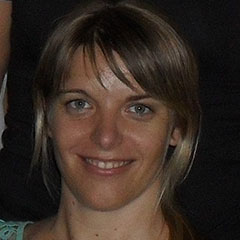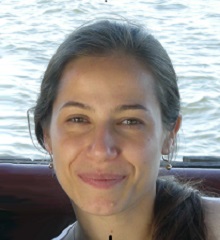Viral Genomics and Bioinformatics (Latin America) (Virtual)
7–11 June 2021
Virtual Course
Hands-on training in viral genome sequence analysis and interpretation of large-scale sequencing genomics data
Summary
PLEASE NOTE: Due to the ongoing Covid-19 pandemic, this course will now be delivered in a virtual format. Participants will receive further information on the new course format shortly.
In collaboration with the Institute of Hygiene, Montevideo, Uruguay and the MRC-University of Glasgow Centre for Virus Research, we are pleased to announce the 2020 overseas course in Viral Bioinformatics and Genomics.
Viral diseases are a major public health burden across the world. In Latin America, Zika, Chikungunya, Dengue and Oropouche are just some of the viral diseases that cause numerous deaths and comorbidities every year. Apart from health risks, emerging viral infections and outbreaks also pose an economic and social burden. For example, the recent emergence of Zika virus in the Pacific Islands and Latin America and its association with microcephaly has caused economic and societal problems.
Advances in research technologies are enabling access to improved detection, surveillance and management of viral diseases. In recent years, next generation sequencing (NGS) technologies have played an important role in the identification and classification of viruses, in the detection of drug resistance mutations and in the treatment and surveillance of viral diseases. Early identification of a virus and rapid analysis of its genome will aid towards better treatment and help in controlling the disease spread. Along with the rapid advances in the sequencing technologies, it is necessary to develop data management methods, computational analysis tools and human expertise to cope with the sequence deluge. The number of researchers able to interpret viral high throughput sequence data is currently limited.
The Viral Genomics and Bioinformatics course will provide participants with a working knowledge of viral genome sequence analysis and interpretation of genomics data generated from high-throughput sequencing. Topics will include the use of the command line to perform analysis of viral NGS data, quality control of sequences, reference and de-novo assemblies, pathogen detection from metagenomics data and building phylogenetic trees. Participants, along with gaining bioinformatics knowledge, will have an opportunity to establish links and networks and develop future collaborative projects.
Target Audience
The course is open to applicants based in Latin America and the Caribbean who are engaged in relevant research/clinical activities, and is free to attend. The programme is aimed at researchers at various levels including Senior Research Assistants, PhD students, Postdoctoral Researchers, Laboratory Scientists and Clinical Scientists/Healthcare Professionals. A limited number of bursaries is available to assist with travel and accommodation expenses. The course will be taught in English with language support from regional instructors.
Programme
The hands-on programme will cover several aspects of analysis of next generation sequencing data from viral genomes, including lectures, practical computational sessions, case studies and seminars:
Topics
- Introduction to Linux/Unix
- NGS file formats
- NGS data quality check and cleaning
- Reference assembly
- Assembly statistics and visualisation
- Consensus and variant calling
- De novo assembly
- De novo contig consolidation and gap filling
- Pathogen sequence detection using sequence classifiers
- BLAST assignment of metagenomics contains
- Sequence submission
- Multiple sequence alignment
- Recombination detection
- Introduction to phylogenetics methods
- BASH scripting
Case studies
- Chikungunya – Genome assembly and annotation
- Zika – Metagenomics
- Ebola – Reference assembly
- Dengue – Phylogenetics
Seminars
- Global health and viral diseases
- Overview of current sequencing technologies and applications
- Deciphering the Transmission dynamics of African swine fever using Next generation sequencing approaches
- The challenge of sequencing DNA viruses from vertebrates: The host genome depletion approach used in African swine fever whole genome sequencing
- Evolution of pathogens
- Resistance associated mutations
Learning Outcomes
After completing this course, participants should be able to:
- Apply Unix/Linux command-line and write basic shell scripts for automating bioinformatics tasks
- Recognize the different file formats related to genome sequencing data
- Select an appropriate strategy for quality control of NGS data
- Construct reference assemblies using different software (e.g. BWA, Bowtie, Novoalign, Tanoti).
- Evaluate genome assemblies using statistics and visualisations
- Use multiple de-novo assemblers for viral genome reconstruction (e.g. SPAdes, ABYSS, IDBA-UD)
- Use metagenomics tools such as KRAKEN and Centrifuge to detect and identify viral pathogens
- Select appropriate software tools to call variants from a reference assembly.
- Compute multiple sequence alignments
- Construct phylogenetic trees to understand viral evolution and transmission dynamics
- Build their own pipeline for analysis, interpretation and identification of viral pathogens.
- Include several aspects of this training in current research and future applications
Instructors and speakers
Lead Instructors/Organisers

Sreenu Vattipally
MRC-University of Glasgow Centre for Virus Research, UK

Josefina Campos
ANLIS Malbrán - Argentina
Instructors

Marta Giovanetti
The Oswaldo Cruz Foundation (Fiocruz), Brazil

Joseph Hughes
MRC-University of Glasgow Centre for Virus Research, UK

Richard Orton
MRC-University of Glasgow Centre for Virus Research, UK

Carolina Torres
Universidad de Buenos Aires - CONICET, Buenos Aires, Argentina.
Guest speakers
Jairo Mendez
Pan American Health Organization
Emma Thompson
University of Glasgow, UK
Teaching Assistants
Andrés Culasso
University of Buenos Aires, Argentina
María Dolores Blanco Fernández
University of Buenos Aires, Argentina
Tomás Poklepovich
ANLIS Malbrán, Argentina
Federico Lorenzo
ANLIS Malbrán - Argentina
Stephane Tosta
Fiocruz, Brasil
How to apply
Prerequisites
The course is open to applicants based in Latin America and the Caribbean who are involved in analysis of viral sequencing data or engaged in relevant research/clinical activities. The programme is aimed at researchers at various levels including Senior Research Assistants, PhD students, Postdoctoral Researchers, Laboratory Scientists and Clinical Scientists/Healthcare Professionals. The course will be taught in English with language support from regional instructors.
Applicants should have a high level of computer competency and be familiar with the UNIX/Linux operating system and basic command line.There are numerous online introductory tutorials to the UNIX/Linux operating system and commad line, including:
http://www.ee.surrey.ac.uk/Teaching/Unix
http://swcarpentry.github.io/shell-novice/
How to Apply
Please click the Apply button above to begin the online application process. Places are limited and will be awarded on merit. If you have any problems with the online application process, please contact us.
Please note: Applications must be supported by a recommendation from a scientific or clinical sponsor (e.g. supervisor, line manager or head of department). A request for a supporting statement will be sent to your nominated sponsor automatically during the application process. Applicants must ensure that their sponsor provides this supporting statement by the application deadline. Applications without a supporting statement cannot be considered.
Cost
Cost
The course is subsidised by Wellcome Genome Campus Advanced Courses and Scientific Conferences and is free to attend for non-commercial applicants. Please contact us for the commercial fee.
Bursaries
A limited number of bursaries are available for each course. These are awarded on merit to cover travel, accommodation and sustenance. The maximum award for travel (economy class) will be £750. If you would like to apply for a bursary, please complete the bursary section of the online application form.
Bursaries can be applied for as part of the course application form. Applicants will be notified of a bursary award along with their place on the course, usually within one month of the application deadline. The decision of the selection committee is final.
Please note that both the applicant and sponsor are required to provide a justification for the bursary as part of the application. Priority will be given to applicants from low- and middle-income countries.
Accommodation services phishing scam – please be vigilant. More information.
Testimonials
Feedback from the 2019 course (Uganda):
“Through the course I have learnt steps to go about NGS data proccessing, and have practiced from the quality control of the data, trimming the data, alignment of the data to annotation, tree building and data upload onto online database”
“I basically came knowing so little and now I am confident I can do Multiple Sequence Alignment,and I enjoyed creating Bash scripts”
“Am very grateful for the opportunity to attend the course. Learning from experienced experts was a great deal to boost my motivation for a career in viral bioinformatics”

